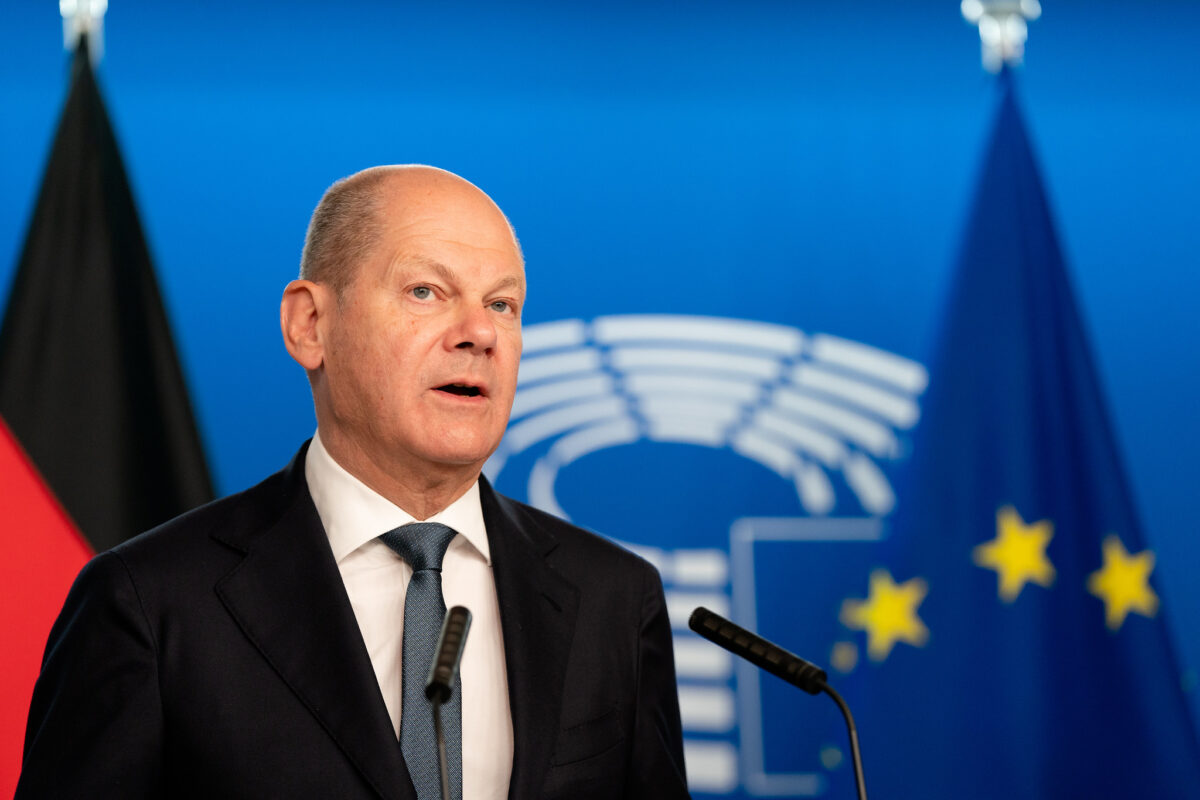Pragmatic, Experienced, and Slightly Awkward
Olaf Scholz
Credited with reviving the politically moribund SPD (Sozialdemokratische Partei Deutschlands), and boasting a CV brimming with public administration experience, Olaf Scholz was, until quite recently, considered somewhat of an oddball by the social democrat rank and file for his robot-like body language and speech. It earned him the nickname ‘scholz-o-mat’. Then again, flamboyant showmen are not usually elected to high office in Germany.
Polling at barely 15% in spring, the SPD staged a spectacular comeback, claiming 25.7% of the popular vote, on the back of Mr Scholz’ robust reputation as a level-headed leader and his carefully crafted public image of the only man capable of following in the footsteps of Angela Merkel.
A statesman in the making, Mr Scholz served as minister of finance and vice-chancellor since 2018 in the Grand Coalition – the alliance between the centre left SPD and the Merkel’s Christian-democrat CDU/CSU. His pro-business credentials are firmly established but initially caused some unease in the party. In 2019, Mr Scholz lost out for the SPD chairmanship to eventual co-chairs Saskia Esken and Norbert Walter-Borjans who moved the party further towards the left, alienating a significant cohort of voters who only returned to the fold after the co-chairs surprisingly nominated Mr Scholz as the SPD’s candidate for chancellor.
Mr Scholz received wide acclaim for his resolute response to the Corona Pandemic. Since the health crisis began, he has steadfastly maintained that Germany can deal with its financial fallout. As finance minister, Olaf Scholz authorised €400 billion in new debt, scrapping the controversial Schwarze Null (‘Black Zero’) policy, constitutionally anchored, that mandates the federal government to maintain a fiscal surplus.
Mr Scholz assured concerned Germans that the country can easily afford the added burden and will be able to grow its way out of debt: “We managed to do that after the 2008/9 financial crisis and will be able to do so again.”
Mr Scholz’ largesse does have limits. He promises to reinstate the constitutional debt break in 2023 and is opposed to permanently loosening EU fiscal rules as desired by France and Italy.
He also repeatedly stated that SPD pragmatism will ensure that policies aimed at limiting climate change will not undermine the country’s economy or prosperity: “The Greens have some good ideas but those can only be implemented with the SPD’s help.” His personal leitmotiv: ‘pragmatism oriented towards the future.’
Less Patience
On Europe, Mr Scholz wholeheartedly agrees with French President Emmanuel Macron on the need to strengthen the continent’s sovereignty as it relates to defence, industrial policy, and climate action.
As chancellor, Mr Scholz is expected to be slightly less understanding and patient than his predecessor and will likely urge Poland in a more forceful way to end its simmering dispute with the EU over the rule of law. On the equally controversial Nord Stream 2 pipeline, Mr Scholz has been less clear, merely stating that it is ‘not needed’ but also stressing the importance of finishing its construction.
Foreign policy, a non-issue in the election campaign and during the coalition talks that followed, is likely to present Chancellor Scholz with his greatest challenges. Although both the SDP and the Greens feature a pronounced anti-American streak, Germany needs to improve relations with Washington in order not to be squeezed should the rivalry between the US and China turn ugly – or uglier.
The Greens may be able to help. Their leader, Annalena Baercock, is set to become the country’s new foreign minister. Though the party is vehemently opposed to any increase in defence spending, including meeting the 2% NATO norm, it does agree with the US on several important issues such as the geopolitical implications of Nord Stream 2 and the need to curtail both Russia and China.
Ms Baercock is much in favour of turning up the pressure on Russia and is also expected to follow the US confrontational policy towards China. She sees the Nord Stream 2 pipeline as a ‘treacherous plan’ of President Putin to gain additional leverage in Europe and wants the project shut down. Ms Baercock also stated that the EU should cut off funds to countries such as Hungary and Poland that fail to abide by European laws, standards, and values.
However, Olaf Scholz represents and embodies German continuity – not big change. Though accents and priorities may shift, the new government does not stand for revolution but for dependability and competence in public administration.
In a sense, Mr Scholz is a bore – a quality much underappreciated for someone managing the levers of power. He fits the words Winston Churchill had for his successor, the unprepossessing Clement Attlee: “He is a modest man and has much to be modest about.” Nonetheless, in 2004 British academics and political historians named Mr Attlee the most successful British prime minister of the twentieth century.
Cover photo: German Chancellor Olaf Scholz.
© 2023 Photo by European Parliament


